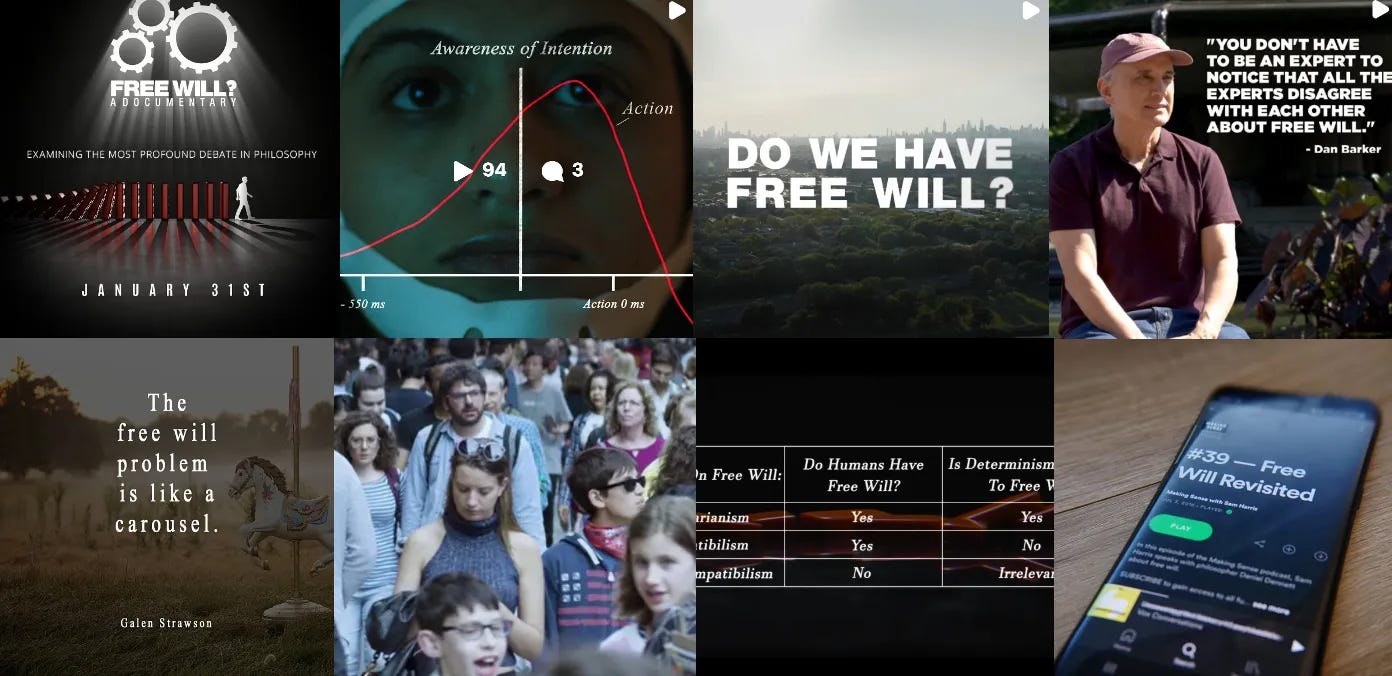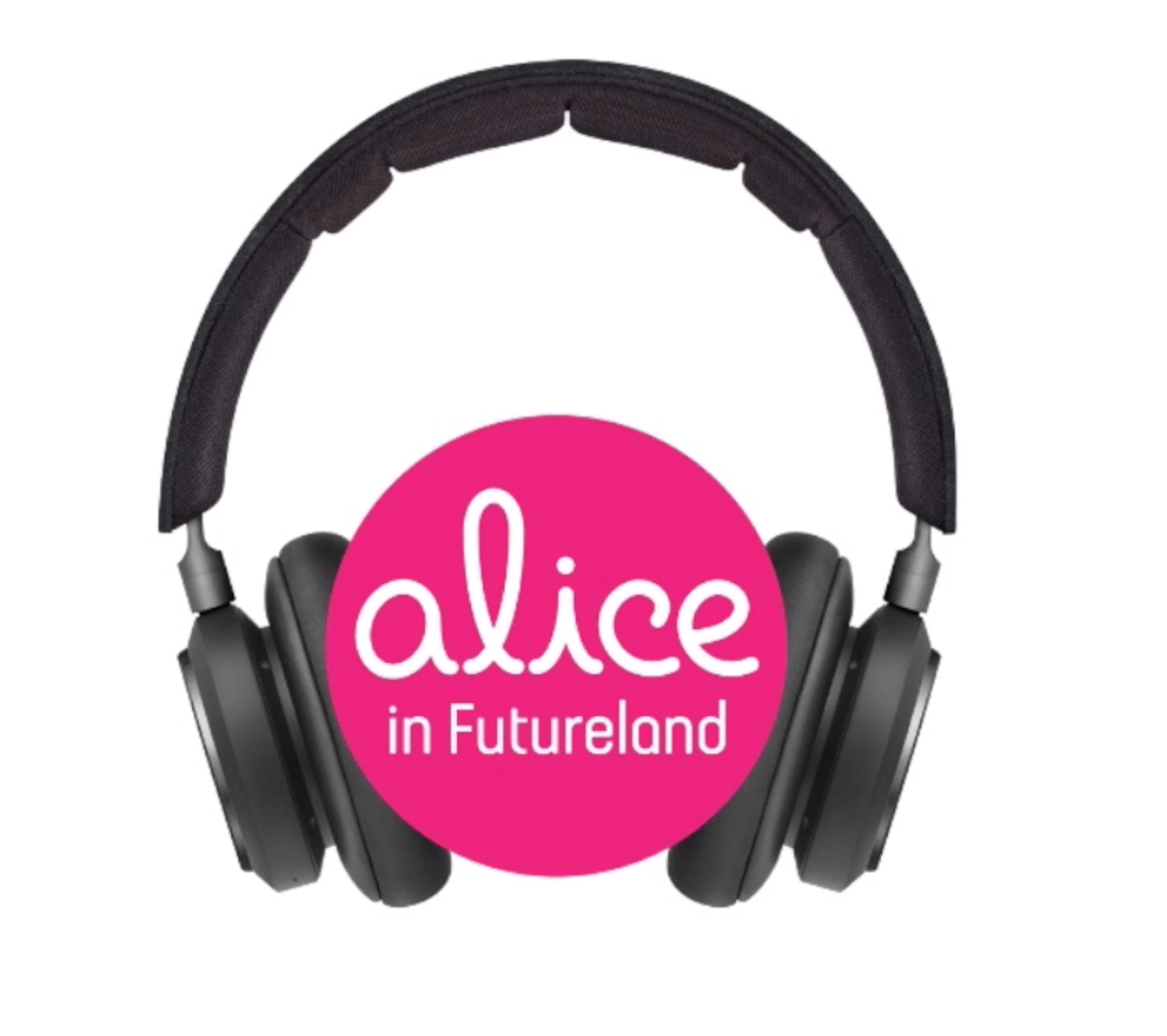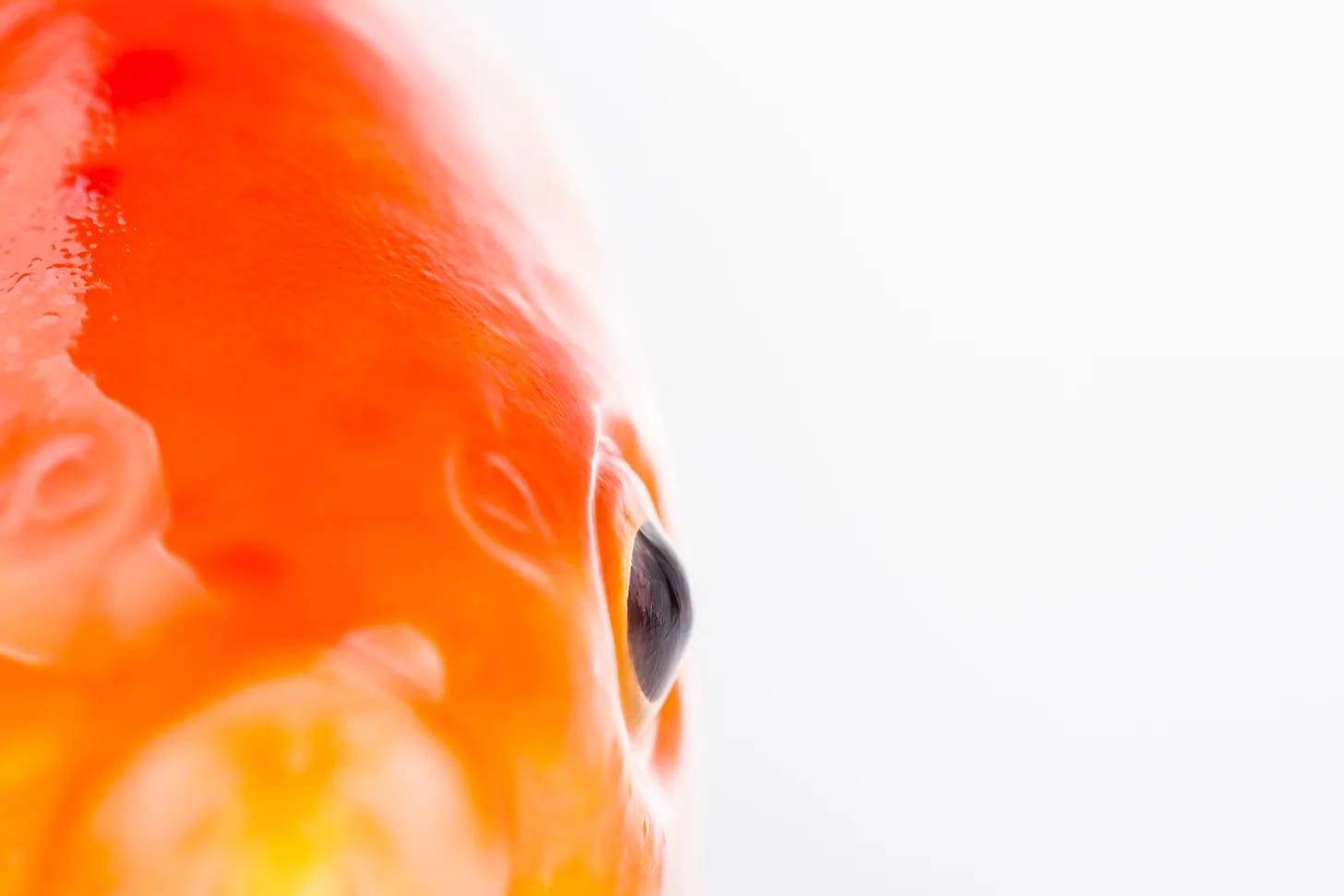🍄 Back Through the Looking Glass 2023 (Part 2)
A look back at the ideas that keep the world spinning.
Exploring every rabbit hole there is for the past 30 years. For more wanderings, become an Alice in Futureland subscriber—it's free.
🍄 AudioDose: this is Alice on Sonic Mushrooms. Adjust your frequency here.
🎧 Alice in Futureland podcasts
📘 Alice books: Tuning into Frequency: The invisible force that heals us and the planet
Hello, we’re Alice and we are always in a state of wander. As we approach the end of the year and get ready for what is on the horizon, we wanted to take a step back and revisit ideas that keep our world spinning and hopefully yours.
Freedom is oxygen!
What is Free Will? Our Greatest Power Struggle.
The Free Will vs Determinism debate is usually framed as an esoteric discourse. But the way we talk about freedom has a direct effect on everything from our personal lives to national politics.
Today, we’re thinking about the theory of free will. At least we think we are. Do we have free will? – It’s a question increasingly up for debate by philosophers and scientists as neuroscience burrows further into consciousness and the quantum mind. Albert Einstein said in a 1929 interview that because he didn’t believe in free will, “…I claim credit for nothing. Everything is determined, the beginning as well as the end, by forces over which we have no control. It is determined for the insect as well as for the star. Human beings, vegetables or cosmic dust, we all dance to a mysterious tune.” The 19th-century materialist, T.H. Huxley, more bluntly, described human beings as “conscious automata” with no free will. Is our sense of self all just an illusion? (Free Will)
Life is like a game of cards. The hand you are dealt is determinism; the way you play it is free will.
—Jawaharlal Nehru (1889 - 1964), first prime minister of independent India, anti-colonial nationalist, secular humanist, social democrat, and author.
The Rainbow, The Worm, H20 and Genius
The micro-anatomy of the entire body needs to be re-examined.
A Scientific American article titled: “Meet Your Interstitium, a Newfound Organ” published in 2018, introduces a paradigm-breaking discovery of fluid-filled spaces in the body’s connective tissue. More than two-thirds of the human body is water, most of that contained inside cells. Much of the rest, about 20 percent of the fluid in the body, is "interstitial," a Latin word combining "inter," or "between," and "sistere," or "to place"—literally, "between the other places.” Understanding the interstitium could be particularly significant in diagnosing and tracking diseases that spread throughout the body.
According to the research team, the interstitium was right there under their noses (and skin) all along, but it took a new way of examining tissues to figure it out. No one saw the "in-between" spaces before because the way scientists traditionally examine human tissue (by slicing it and treating it with chemicals) drains away its fluids. Interstitial tissues handled that way throw off all of their fluids and, in essence, flatten out. Life exists on a spectrum and is, at its root, organized, quantum coherent energy. (The Rainbow)
Take a sonic break and free will here.
Are You Ready for the Precog Economy?
Jacques Vallée, internet pioneer and astronomer, proposes the idea of ‘the physics of information’ - an invisible universe that interacts with human consciousness.
“It’s a model in which miracles and coincidences and all kinds of things that are unexplainable in the physics of energy become normal things in the physics of information.”—Jacques Vallée, ALICE interview.
Out of this World
“You can think of the world as a world of energy, particles, atoms, molecules, fields, and so on, which is the world that we learn about in school,” says Vallée, who is rumored to be the researcher played by François Truffaut in Steven Spielberg’s 1977 sci-fi, Close Encounters of the Third Kind. “But you could also think of the world as a universe of information, with human consciousness becoming aware of the information from microsecond to microsecond.” (Precog Economy)
Quantum, Meet AI.
Big plans afoot for the lab-grown brain—it wants to become conscious. That’s right, before we can even pinpoint where—or even really, how —consciousness “is”, scientists want to build-a-brain and rig robots up with the same stuff that makes us think we’re so special. “What would it take for a machine to become conscious?” asks Anil Seth, Co-Director of the Canadian Institute for Advanced Research (CIFAR) program on Brain, Mind and Consciousness. “What would the implications be? And how, indeed, could we even distinguish a conscious machine from its zombie equivalent?”
It’s Not About AI. It’s About IA.
The convergence of quantum computing, artificial intelligence and human intelligence is the future that we should be preparing for. A child born today will be the first ‘quantum AI natives,’ learning, developing, and working alongside GAI and QAI (Quantum Artificial Intelligence). This generation—and for more to come—will perhaps be developing a new intellectual skill set that encompasses a cultivated consciousness in collaboration with the AI we are just beginning to build. The debate should not be just about AI, but about the IA—‘intelligence amplification.’ As the pace of quantum computing and AI accelerates, we need to come to grips with the new intelligence we are creating. To quote science fiction writer Vernor Vinge—who coined the term ‘singularity’—in the relatively near future “we will see change as great as the rise in humankind within the animal kingdom.” In his interview with ALICE, Vinge shared his belief that it is very likely that in the next ten to twenty years there will be people much smarter than we are, a greater difference than what now exists between a person and a goldfish. Enhancing intelligence, according to Vinge, will at some point lead to a positive feedback loop; more intelligent systems can design even more intelligent systems, and much quicker than the original human designers. This positive feedback will be powerful enough that within a very short time—months, days, or even hours—the world will be transformed beyond recognition and suddenly inhabited by super-intelligent beings. (Quantum, Meet AI)
Craving more?
📘 Alice in Futureland books
🎧 Alice in Futureland podcasts
Thanks for tuning in.
For more wanderings, become an Alice in Futureland subscriber—it's free.
Invite your friends to this mad tea party and let's see how many things we can learn before breakfast.
©2023 Alice in Futureland









